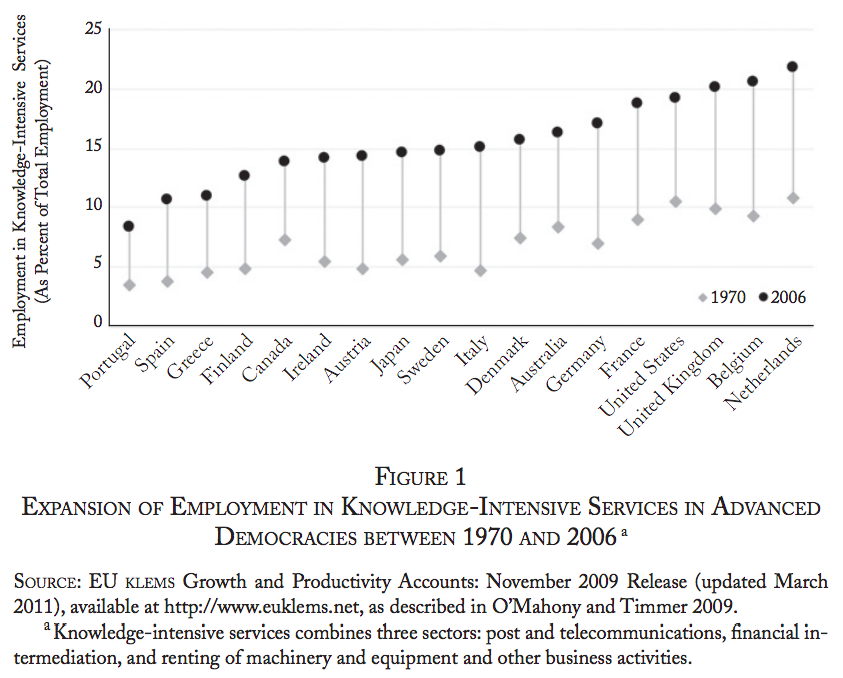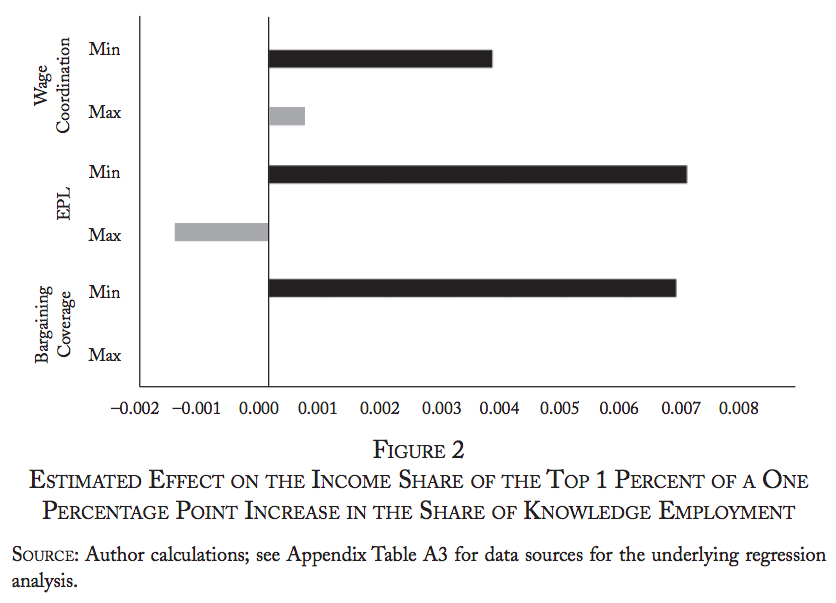
Hot off the press! My publication “The Transition to the Knowledge Economy, Labor Market Institutions, and Income Inequality in Advanced Democracies” with David Hope (King’s College) is finally out in World Politics.
A good read for all those interested in understanding the extent to which the relationship between the changing nature of work and income inequality is influenced by national labor market institutions.
Paper abstract
Recent work in comparative political economy has found that labour market institutions can mitigate the inequality-enhancing effects of the transition to the knowledge economy (Hope and Martelli 2019). While this work enhances our understanding of the role and importance of labour market institutions in the post-industrial era, it cannot tell us much about the underlying mechanisms. This paper aims to fill that gap in the literature by undertaking a micro-level econometric study on Denmark using a unique longitudinal dataset with linked employer-employee data, the Integrated Database for Labour Market Research (IDA). The central analysis in the paper will explore the influence of union membership and collective bargaining on within and between firm inequality in knowledge-intensive sectors. It will also test competing hypotheses as to why labour market institutions have been able to damp down the effects of the transition to the knowledge economy on income inequality.
A couple of takeaways
The transition to the knowledge economy began in earnest after the crisis of Fordism in the 1970s. Figure 1 (below) shows the employment expansion in knowledge-intensive service sectors, such as finance, insurance, business services, and telecommunications, between 1970 and 2006. Growth of knowledge employment was ubiquitous in the advanced democracies over this period; the average employment expansion was close to nine percentage points. The rise of the knowledge economy is clearly demonstrated by this substantial shift in economic structure away from traditional industries and toward ICT-intensive service sectors.

Figure 2 (below) shows that for the income share of the top 1 percent, an increase in knowledge employment is associated with an increase in inequality when wage coordination and collective bargaining coverage are very weak, but has little or no effect when they’re at their highest levels.

You can read more about this research in a blog post I wrote with my coauthor based on a previous version of the paper on LSE’s European Politics and Policy blog (EUROPP).
Next we are planning to work on A Micro-Level Study of the Knowledge Economy, Institutions, and Income Inequality.

Angelo Martelli ’11 is a Postdoctoral Research Fellow at LSE. He is an alum of the Barcelona GSE Master’s in Economics.
